News
-
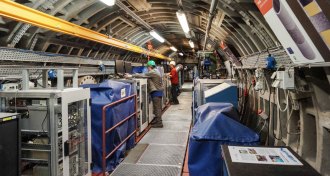 Physics
PhysicsRarest nucleus reluctant to decay
Tantalum-180m has a half-life more than a million times the age of the universe.
-
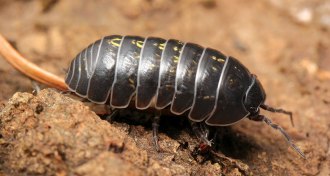 Genetics
GeneticsTo make female pill bugs, just add bacterial genes
Genes from Wolbachia bacteria infiltrated pill bugs and now make genetic males female.
By Susan Milius -
 Cosmology
CosmologyAfter Big Bang, shock waves rocked newborn universe
Shock waves in the early universe could explain the generation of magnetic fields and the predominance of matter over antimatter.
-
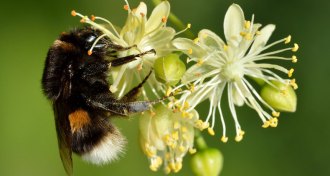 Animals
AnimalsPrimitive signs of emotions spotted in sugar-buzzed bumblebees
When bumblebees eat a sugary snack, they make more optimistic decisions, a new study finds. This could be early evidence for emotion in insects.
-
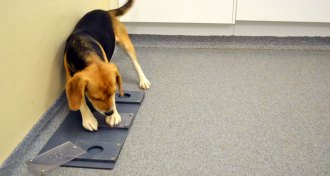 Genetics
GeneticsGene linked to autism in people may influence dog sociability
DNA variants were linked to beagles’ tendency to seek human help.
-
 Planetary Science
Planetary ScienceSo long, Rosetta: End is near for comet orbiter
During its time in orbit around comet 67P, the Rosetta spacecraft discovered diverse terrains, organic molecules and a source of water quite different from Earth’s oceans.
-
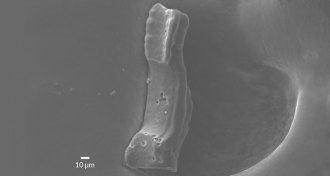 Earth
EarthGlass bits, charcoal hint at 56-million-year-old space rock impact
Glassy debris and the burnt remains of wildfires suggest that a large space rock hit Earth near the start of the Paleocene-Eocene Thermal Maximum warming event around 56 million years ago.
-
 Health & Medicine
Health & MedicineConcern expands over Zika birth defects
Infection with Zika virus in utero can trigger a spectrum of birth defects beyond microcephaly, and could potentially cause long-term health problems as well.
By Meghan Rosen -
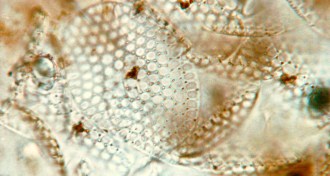 Paleontology
PaleontologyAncient microbe fossils show earliest evidence of shell making
Armor-plated, 809-million-year-old fossilized microbes discovered in Canada are the oldest known evidence of shell making.
-
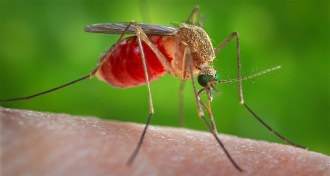 Animals
AnimalsNew case emerging for Culex mosquito as unexpected Zika spreader
The much-debated proposal that a Culex mosquito could help spread Zika gets some international support.
By Susan Milius -
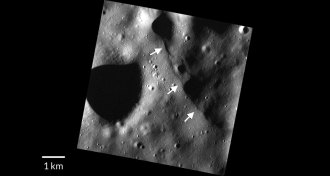 Planetary Science
Planetary ScienceMercury’s surface still changing
A population of small cliffs on Mercury suggests that the planet might have been tectonically active in the last 50 million years.
-
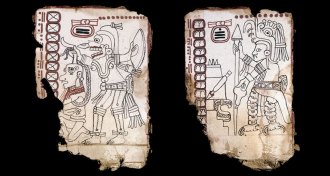 Archaeology
ArchaeologyAncient Maya codex not fake, new analysis claims
New report suggests an ancient Maya text — the bark-paper Grolier Codex — could be the oldest known document in Americas.
By Bruce Bower